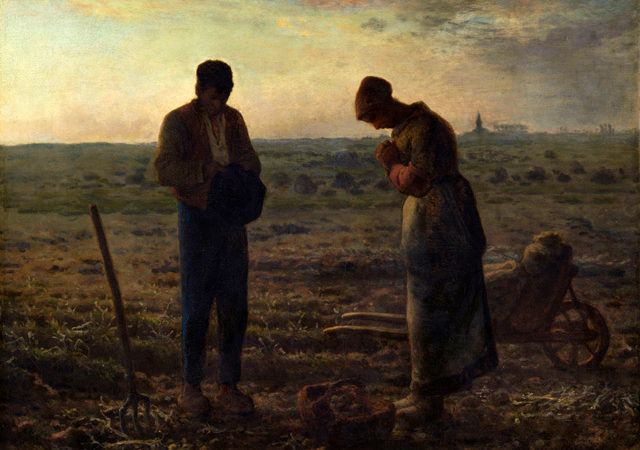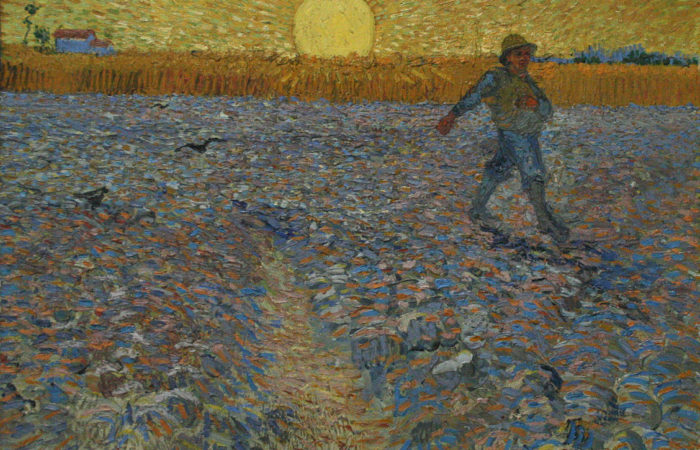During his adult life, Uli Chi has lived and worked in the intersection between business, the academy and the church. He has had the privilege of serving as past Board Chair of Regent College in Vancouver, BC, as current Vice Chair of the Board of the Max De Pree Leadership Center at Fuller Seminary, and as current Chair of the Executive Committee of the Center for Integrity in Business at Seattle Pacific University. He has also been involved in all aspects of local church leadership, including as a member of the adult ministries team’s teaching faculty at John Knox Presbyterian Church in Seattle.
Click here to view Uli's profile.

Vocational Gratitude: Redemption
As we celebrate this Advent Season, reminded again of Jesus’ coming into the world, I want to reflect on the distinctive vision and driving force behind God’s incarnation in Jesus Christ. What was the mindset that Jesus brought to his work in the world? And, what might that say to us about our work as leaders?
Read Post
Vocational Gratitude: Fall
We’ve all done it. Someone does something that offends us and they come to apologize. And, we say something like, “Oh, never mind. It’s ok.” We’re trying to make the other person feel better by saying that what he or she did didn’t really matter. But of course, that’s not really the case. It did matter. At least, it did to us. And, when we take that tack, we’ve missed something important.
Read Post
The Greatest Commandment: Shaping Institutions
Meaningful engagement in institutional life – being part of a marriage, a family, a local congregation, a company, a charitable organization, a local community, a city, a state, a nation – is some of the most challenging work we do as human beings. And yet, as today’s text reminds us, that is where God’s word is to be inscribed, “on the doorposts of your homes and on your city gates.”
Read Post
Prayerful Work
Early in my Christian experience, I thought that the Apostle Paul intended me to retreat from the world to spend all my time focusing on my interior life of prayer… Thankfully, the apostolic command to “pray continually” isn’t primarily about developing our devotional prayer life, even though that is important. It has much more to do with learning to pray our everyday life, particularly in the context of our work, where prayer may be the last thing on our minds.
Read Post
Ora et Labora: Praying on the Run
I’ve always been a bit suspicious of those who paint too rosy a picture of the life of faith. Early in my Christian journey one of the popular evangelical sayings was that God has a “wonderful plan for your life.” Turns out, “wonderful” must have meant something entirely different than what I thought the word meant!
Read Post
Vocational Gratitude: Creation
Hope was wired to be a working dog. Her Creator gave her remarkable energy and intelligence for the purpose of herding cattle. And she was either going to fulfill that purpose, or create havoc doing something else!
Read Post
A Posture of Gratitude
Keeping your head down at work — while perhaps unavoidable on occasion — is not a good, long-term posture. Instead, Psalm 111 reminds me that thankfulness—an upward orientation — is the key to a truly human life, to truly human work.
Read Post
Parable of the Sower: Learning to Follow
Seeing the genesis of our leadership as a seed is helpful in a number of ways.
Read Post
Who Are You Becoming?
The things we make wind up making and remaking us.
Work is like that. Not only is work something we do, but it invariably shapes who we become. That is another reason why our work is important to God.
Read Post
What Makes a Good Leader?
Each of us has a history – personal, familial, organizational. Psalm 78 tells Israel’s history with stark honesty. No attempt is made to “spin” its story to make God’s people look good. The bulk of the psalm is a long litany of Israel’s failures despite God’s mercy and continued faithfulness. If for no other reason, I like this psalm because it reminds me that all my history can be faced. In a contemporary leadership culture that tends to hide its failures and weaknesses, this is refreshingly good news.
Read Post
Parable of the Sower: A Good Harvest
Today’s text describes the seed falling into good soil. So, what makes the soil good? As our last set of reflections suggested, part of the answer lies in our giving conscious, sustained and disciplined attention to Jesus’ way of life and leadership. However, this is not merely an exercise in acquiring leadership knowledge or technique. Jesus’ teaching challenges us at the core of our being as leaders.
Read Post
The Greatest Commandment: In Every Place and At All Times
Our task is to give witness to Jesus as Lord in the midst of the public square. As today’s text reminds us, despite our track record, abandoning the public arena is not an option for faithful disciples. In the context of each of our leadership responsibilities there is a public dimension to our faith. How are we to live it out?
Read Post
Leadership Prayers: Psalm 142
There are times in leadership when we find ourselves isolated. Sometimes we find ourselves there of our own making. We’ve had to make some hard decisions with which everyone else strongly disagrees, and we feel alone. Sometimes it’s the result of others’ actions. We find ourselves marginalized politically or even have our organization “right-sized” out of existence. Where once we had colleagues and superiors who supported us, we now find ourselves isolated. As the Psalmist prays in today’s text: “Look and see, there is no one at my right hand; no one is concerned for me. I have no refuge; no one cares for my life.”
Read Post
Leadership Prayers: Psalm 141
I have spent much of my working life trying to develop “covenantal” business relationships. The word “covenantal” implies a focus not merely on the economic transactions of the relationship, but on the well-being of the other person or institution. While there is considerable interest today in forming strategic business partnerships, those partnerships are usually dominated by, if not exclusively concerned with, matters of business self-interest. But what if self-interest were supplanted by—or at least augmented with—a real interest in the common good made possible by the relationship? One such relationship that I experienced started well. Our business counterparts shared many of the same strategic interests and cultural values as our company did. We built a mutual business relationship rooted in figuring out what made business sense not only for ourselves but for the other. But, over time, things changed. For a variety of reasons, our business partners began to treat the relationship like any other. From their end, the business relationship had devolved from a covenantal one to a transaction-oriented one. We were faced with the question: How should we respond?
Read Post
Leadership Prayers: Psalm 140
There are different kinds of enemies and different sorts of violence they seek to perpetrate. In the world of work and leadership, there are personal and impersonal enemies. As an example of the former, some people see others as obstacles in their ascent to or retention of power, and therefore seek to undermine the others’ roles and work. As an example of the latter, market forces can create competitive situations where one organization effectively seeks to destroy another in the quest for customers and market share.
Read Post